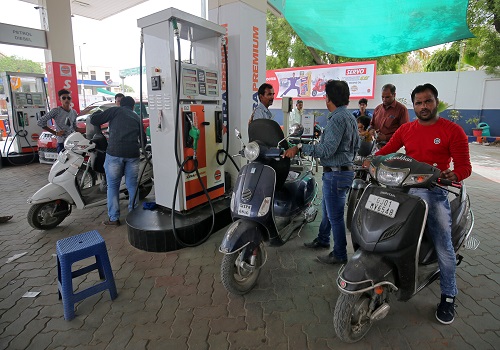S&P Global Commodity Insights: Asia's crude, oil products flows may see dramatic shifts

Follow us Now on Telegram ! Get daily 10 - 12 important updates on Business, Finance and Investment. Join our Telegram Channel
* Asian oil markets in 2023 are set to witness a dramatic shift in trade flows as Russian cargo inflows rise while African and US crudes are increasingly diverted to Europe. At the same time, market participants are expecting the flow of Asian oil products to countries looking to fill the gap caused by EU sanctions on Russian products, due in February 2023.
* Asian oil buyers would still be hoping for a return of Iranian crude, even though chances might be slim. Iranian crude could potentially bring relief to market supply at a time when the tug-of-war between Asia and Europe for Middle Eastern crudes looks to intensify.
* "The new year will be a dramatic one for Asian oil markets. From increased diversions of Russian crude to Asia to the increasing need of oil products by Europe from around the world including Asia, the list of factors to dominate the headlines will be long," said Kang Wu, head of global oil demand and Asia Analytics at S&P Global.
* "Additional key factors to watch will thus be demand recovery in China and its oil product exports, the growth of jet fuel demand in Asia as a whole, as well as the region's refinery run rates," he added.
* Russia will be looking for new buyers to sell up to 1 million b/d of seaborne crudes, volumes that used to go to Europe before the Dec. 5 sanctions came into effect. Of that, Asia might have the bandwidth to absorb only half, in addition to the more than 2 million b/d it has been buying prior to the EU sanctions.
* "This will help to plug the supply gap that will widen as more of US and African crudes will now get diverted from Asia to Europe," Kang added.
* From a market share of less than 1% in India's import basket before the start of the conflict, Russia's share of imports in October rose to 4.24 million mt, or nearly 1 million b/d, taking a 21% share. It was comparable to that of Iraq and higher than Saudi Arabia's around 15%.
* In October and November, refiners were in a hurry to snap up plentiful cargoes ahead of any potential shipping or policy hurdles due to the EU sanctions on Russian crude.
* Analysts are of the view that India would continue to buy large volumes of Russian crude in 2023. Indian policymakers have said buying Russian crudes have been advantageous in keeping inflation under control.
China's influence
*China also has not let the opportunity to pick up discounted Russian crudes pass.
* From a market share of 15.5% in the 2021 import basket, Russia's share of China's imports rose to 17.4% in the January-October period, or 1.74 million b/d. The year-on-year growth for Russian inflows has been close to 10% in the 10-month period despite China's total crude imports falling 2.7% in the same period.
* All eyes are now on Beijing's decisions after Guangzhou announced Nov. 30 plans to remove most pandemic-related restrictions and resume public transport. Oil and commodities markets are surely breathing a sigh of relief and hoping that an earlier-than-expected reopening of the entire economy could prompt a demand revival in Asia's biggest oil consumer.
* Although China's demand for transportation fuel might increase slightly in the near term, the recovery in oil demand won't be sharp in December and January amid rising infections, sources have said. The markets would be watching how infections are controlled during and ahead of China's Lunar New Year holidays in January.
China's oil demand would reach 15.7 million b/d in 2023, around 700,000 b/d higher than that in 2022. Total demand in 2024 may continue to increase by another 500,000 b/d compared with 2023 levels, according to S&P Global.
* "As of now the expectation is that China's oil demand revival in 2023 will be uneven. Depending on how quickly controls are eased, there is always this risk of multiple waves of infections, causing demand to fall significantly at times and spiking at others," said Lim Jit Yang, adviser for Asia-Pacific oil markets at S&P Global.
Above views are of the author and not of the website kindly read disclaimer












 320-x-100_uti_gold.jpg" alt="Advertisement">
320-x-100_uti_gold.jpg" alt="Advertisement">












